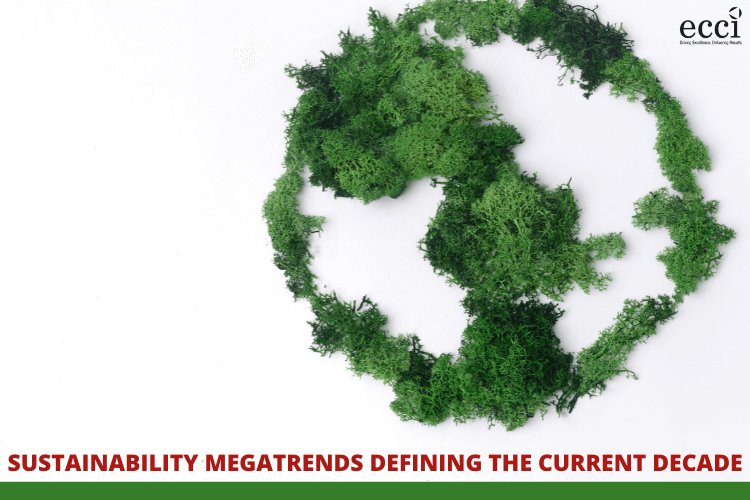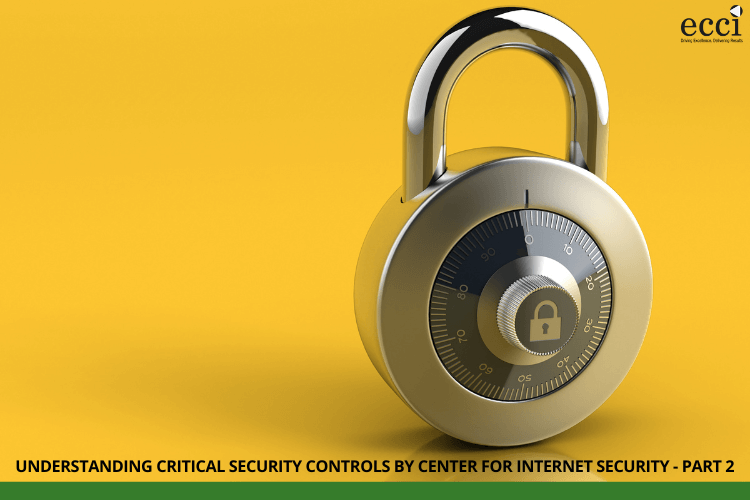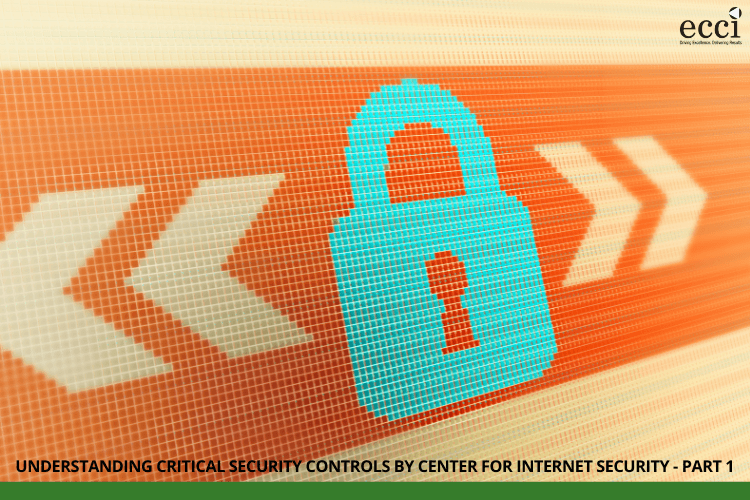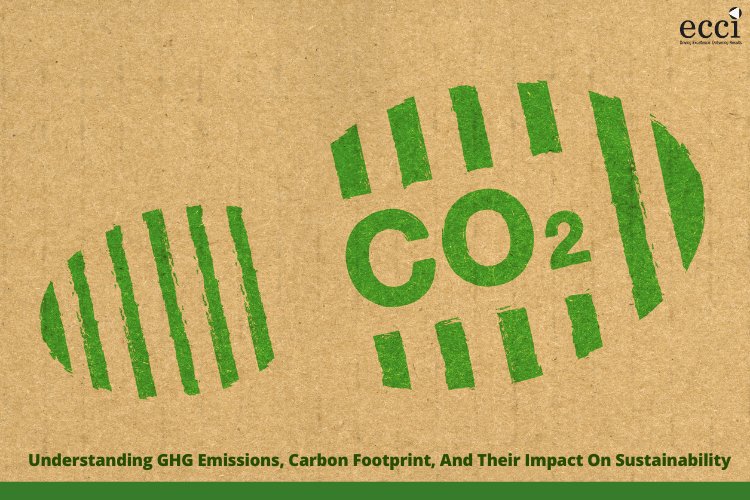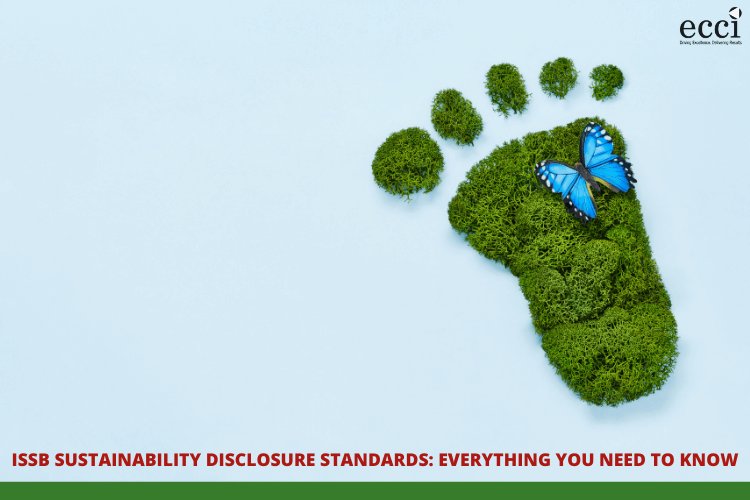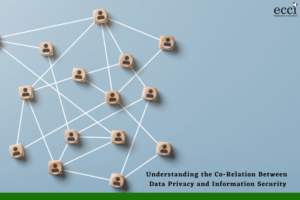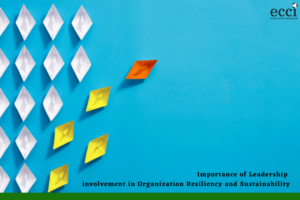Today, more than ever, integrating sustainability into your business strategy is important to future-proof your organization. However, companies around the world are realizing that to do so, they should plan for and address the potential impacts of global sustainability megatrends, which have the power to fundamentally alter the way we operate over the coming years.
In keeping our strategy and portfolio market-informed, ECCI looked into some of the new sustainability issues cropping up and the current ones that will continue to impact the world – leading to megatrends we need to be prepared for.
Sourced from industry insights, our expert views, regulatory trends, and outlook from global analysts, we’ve made an essential list of these megatrends. We can look at these as stepping stones toward understanding how to drive enterprise value amidst a sustainable society by managing risks, reconfiguring approaches, and ensuring respect for our planetary boundaries.
So, without further ado, let’s dive into this article and explore the ten sustainability megatrends that are defining the current decade.
What is sustainability?
Sustainability is often defined as “meeting the needs of the present without compromising the ability of future generations to meet their own needs”. It assumes that resources are finite and should, therefore, be used conservatively and carefully to guarantee an adequate supply for future generations without compromising the present quality of life.
The concept of sustainability is commonly categorized into three pillars: economic, environmental, and social—also referred to informally as profits, planet, and people.
Social sustainability is about promoting human rights, equality, and social justice. It highlights the need to address issues like inequality, poverty, and social well-being. Social sustainability seeks to ensure that everyone has access to essential services, fair opportunities, and a high quality of life.
This aspect encourages businesses to operate in ways that are socially responsible, ethical, and considerate of diverse stakeholders.
Economic sustainability entails nurturing stable and resilient financial systems. This includes promoting practices that contribute to long-term prosperity, job creation, and financial stability. It’s about building economic systems that benefit both the present and future generations.
This aspect of sustainability encourages businesses to embrace responsible economic practices that consider their effects on both society and the environment.
Sustainability is not just about building a better future for our societies. Organizations that effectively implement sustainability strategies can experience advantages such as reduced costs, energy savings, heightened consumer confidence, and optimized assets.
Ten sustainability megatrends defining the current decade
We identified the following list of ten megatrends that have a significant impact on businesses around the world. Each trend is integral to the sustainability context in shaping the global agenda.
1. Rise in climate strategies and disclosure
In the current decade defined by climate change, environmental consciousness, and the pursuit of sustainable business practices, we see a trend arising of a focus on climate strategies and disclosure.
The shift from business as usual to climate-conscious business strategies is not merely a matter of compliance with regulations; it’s about proactively addressing the environmental crisis and societal expectations.
More and more organizations are setting ambitious greenhouse gas (GHG) emission reduction targets. Net-zero emissions commitments have become a standard, requiring companies to balance the emissions they produce with equivalent emissions removed from the atmosphere.
Companies are also increasingly disclosing comprehensive data about their environmental performance, carbon footprint, climate-related risks & opportunities, and progress toward emission reduction goals. This level of disclosure allows stakeholders like investors, consumers, and regulatory bodies, to thoroughly evaluate an organization’s sustainability efforts.
Consumers are playing a significant role in driving this trend by choosing products and services based on a company’s sustainability efforts. Simultaneously, investors are integrating climate risk considerations, pressuring organizations to showcase their commitment to addressing climate change or risk market devaluation.
2. Consolidation of disclosure standards
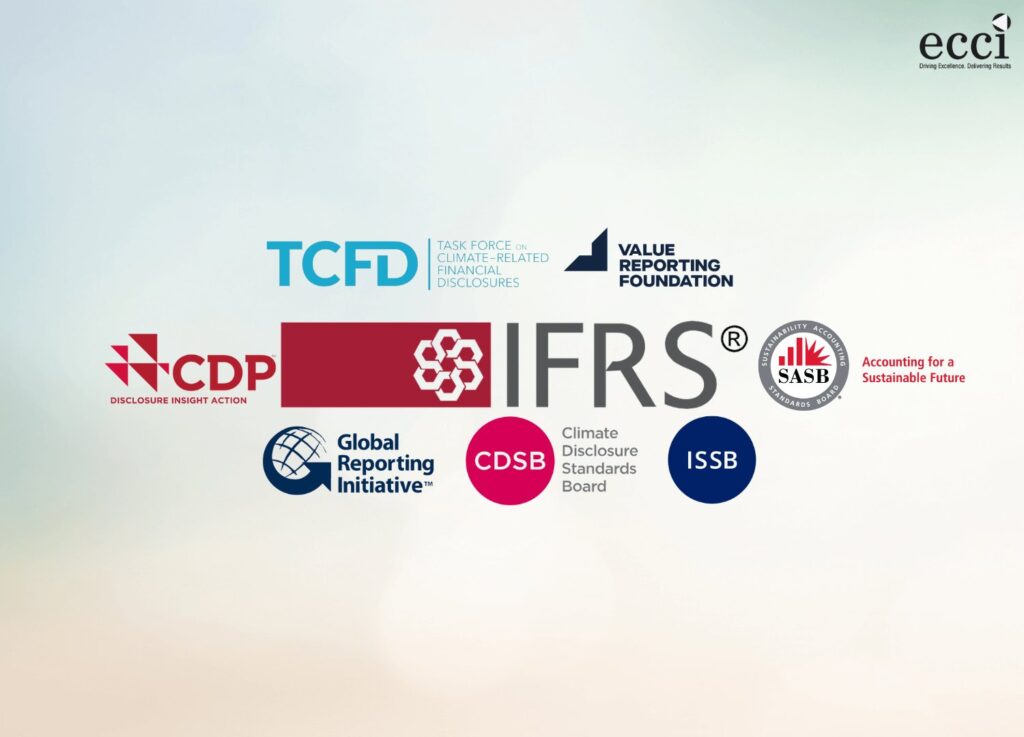
With thousands of climate laws & policies and ESG reporting provisions, distinguishing applicable standards and drawing meaningful comparisons had become an increasingly daunting challenge for companies, investors, & regulators. This led to a call for global convergence of ESG disclosure standards to support consistency and avoid confusion.
To address this demand, the International Financial Reporting Standards (IFRS) Foundation laid out its plan to establish globally consistent standards in late 2021.
It formed a new International Sustainability Standards Board (ISSB) in 2022 and integrated two leading sustainability disclosure organizations, namely the Climate Disclosure Standards Board (CDSB) & the Value Reporting Foundation (VRF).
The ISSB Standards signal a notable shift towards a unified global set of standards and away from the existing patchwork of reporting frameworks such as the Task Force on Climate-related Financial Disclosures (TCFD) and the Sustainability Accounting Standards Board (SASB).
This trend continued with ISSB announcing a collaboration with the Carbon Disclosure Project (CDP) and the Global Reporting Initiative (GRI). In June 2023, the board launched its inaugural standards – IFRS S1 and IFRS S2, ushering in a new era of sustainability-related disclosures in capital markets worldwide.
The ISSB will also continue to work with jurisdictions that seek additional disclosure requirements beyond the global baseline and with GRI to enhance the efficiency and effectiveness of reporting when organizations apply ISSB Standards in combination with other reporting standards.
3. Global Plastic Treaty

As our world grapples with the increasing ecological challenges posed by plastic pollution, nations and organizations are coming together to tackle this crisis.
The Global Plastic Treaty is at the forefront of these efforts, marking a pivotal step towards a more sustainable and plastic-free future.
Through the endorsement by 175 nations, a historic resolution was adopted at the resumed fifth session of the United Nations Environment Assembly (UNEA-5.2), aiming to eradicate plastic pollution and establish an international legally binding agreement by 2024.
The agreement will reflect diverse alternatives to address topics like the lifecycle of plastics and ocean pollution and is expected to drive new international collaborations and innovations throughout the sector.
The Global Plastic Treaty is not just an agreement on paper; it represents a global dedication to reducing the production and impact of single-use plastics. As nations and stakeholders come together to commit to the treaty’s principles, there is hope for a world where plastics are no longer synonymous with pollution.
There will be more Initiatives like the Global Plastic Treaty, which will continue to address the environmental and health dimensions of sustainable development.
4. EVs + mass transit shaping sustainable transport
According to a report by Statista, more than 20% of the world’s carbon emissions come directly from the transport industry.
Mass transit is paving the way for the wider industry to innovate and become green. Modern mass transit systems include vehicles employing a range of clean energy technologies. One significant advancement in modern sustainability is the electrification of transportation.
100 %-electric and hybrid buses, electric light rail, private EVs, and other cutting-edge electric mass transit technologies are all exciting advances in sustainable transit globally.
In case you missed it, electric vehicles (EVs) made headline after headline over the past year as more models continue to hit the market each month and consumers increasingly shift their attention to more efficient vehicles with minimal to zero emissions.
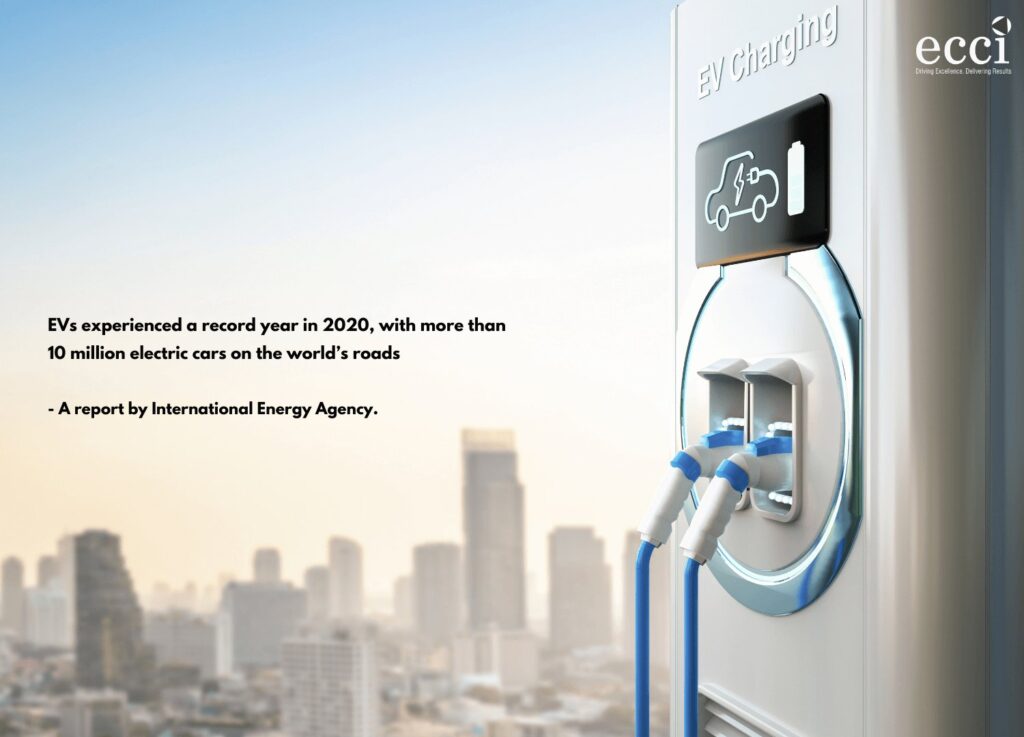
EVs emit little to no GHGs, depending on the source of electricity. This positions them as a greener alternative to traditional gasoline-powered vehicles. Their sales continue to trend upward as they become increasingly affordable and accessible.
5. Digitalization of the sustainability ecosystem
One defining mega trend that definitely stands out with regard to sustainability is the digitalization of the sustainability ecosystem.
The blend of digital technology and sustainability has brought forth a new era of environmental, social, and economic progress.
From advanced data analytics to the Internet of Things, digital tools are reshaping how we approach sustainability. These technologies supercharge us to monitor, manage, and optimize our environmental impact with unprecedented precision.
They facilitate real-time data collection and analysis, enabling companies & individuals to make more informed decisions that minimize waste, reduce energy consumption, and enhance resource efficiency.
Digitalization also promotes transparency, making it incredibly easy for consumers to choose sustainable products & services. As we move into this decade, the symbiosis between the digital and sustainable realms promises to be a driving force for positive change on a global scale.
6. Rising action around human rights in the global supply chain
The increasing focus on human rights within the global supply chain is one of the profound sustainability megatrends defining this decade. This trend reflects a growing awareness and commitment to addressing human rights issues, particularly in the context of supply chain management.
There is collective action and industry-wide partnership to improve workers’ rights and make ethical supply chains more visible. Stakeholders are increasingly holding organizations accountable for their supply chain practices.
Businesses are expected to not only monitor their suppliers but also take proactive steps to ensure that human rights are upheld throughout the supply chain.
Many governments and international organizations are introducing or strengthening regulations related to human rights in supply chains. This includes laws and requirements aimed at eliminating slavery, trafficking, and other human rights abuses from supply chains.
Companies are recognizing that a failure to address human rights issues in their supply chains can have severe consequences, affecting their reputation, brand value, and financial performance. As a result, they are prioritizing human rights as a fundamental component of their sustainability strategies.
This trend reflects a collective commitment to ensure that the products and services we consume are not produced at the expense of human dignity and well-being. It emphasizes that sustainability is not just about the environment but also about the social and ethical dimensions of business practices.
7. Circular economy
Manufacture, use, and dispose? No. Reduce, reuse, and recycle. The paradigm of the linear economic model could come to an end, and its place will be taken by the circular economy.
Companies are increasingly recognizing the benefits of creating products and systems that can be readily disassembled, repaired, refurbished, and remanufactured rather than being discarded after their initial use.
The circular economy is seen as a more sustainable and efficient economic model that can help reduce waste, preserve natural resources, and mitigate climate change. It is becoming increasingly popular due to growing resource scarcity, economic and environmental benefits, and consumer demand for sustainable products.
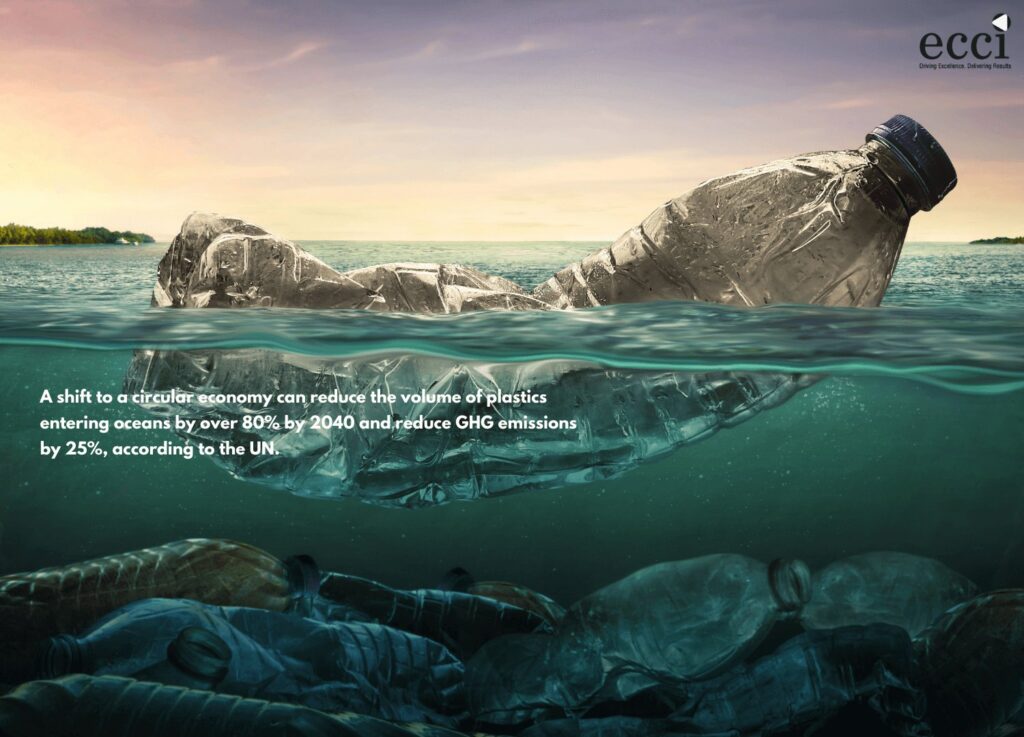
As consumers grow increasingly conscious of the environmental impacts of their consumption patterns and businesses strive to minimize their environmental footprint, it is likely that this trend will persist and gain more popularity in the years ahead.
8. Carbon Capture, Utilization, and Storage (CCUS) technologies
As the world grapples with the threat of climate change, there is an urgent need for innovative, new technologies to reduce GHG emissions.
One such emerging technology that shows game-changing potential is advanced Carbon Capture, Utilization, and Storage (CCUS).
CCUS is a combination of technologies that are designed to capture carbon dioxide emissions from oil & gas refineries, power plants, and industrial facilities and then transport and store it underground. This novel technology has already shown remarkable potential to reduce CO2 emissions while still allowing for the continued use of fossil fuels.
Several commercial facilities are already in operation, applying CCUS to industrial processes, fuel transformation, and power generation.
CCUS deployment has fallen short of expectations in the past, but recent years have witnessed significant momentum, with more than 500 projects in various phases of development spanning the entire CCUS value chain.
With its ability to make substantial contributions to emissions reduction and its potential to play a pivotal role in achieving global climate goals, CCUS technologies deserve continued support and investment.
9. Brand responsibility and transparency
Brand responsibility and transparency is another critical sustainability megatrend that has emerged in recent years.
Companies are increasingly feeling the weight of their responsibilities, both to the environment and to society. Ensuring that their supply chains are free from exploitation, that their operations minimize harm to the planet, and that they are not just taking but also giving back to the communities they operate in, all fall under the umbrella of brand responsibility and transparency.
Consumer expectations have significantly evolved in the past few years, with a growing demand for accountability from the brands they support.
As a result, governance in sustainability is taking center stage. It’s no longer sufficient for brands to make grand claims about their sustainability efforts; they are now expected to back these claims with concrete actions and transparent reporting.
Moving forward, we’ll likely see companies and investors tested on their sustainability commitments’ authenticity. Governments worldwide have passed laws requiring comprehensive sustainability reporting from businesses, a legal obligation that must not be taken lightly.
10. Race to Net Zero
In recent years, there’s been a lot of buzz around businesses and some governments setting net-zero targets.
According to the Science Based Targets Institute’s (SBTi) dashboard, as of October 21, 2023, 6,323 companies are taking action, and 3,696 companies have approved targets.
During the pandemic, many organizations were proposing net zero plans without necessarily developing clear roadmaps and action plans for how to execute them. Fast forward a few years, and we are seeing significantly more companies becoming intentional, tactical, operational, and data-driven with their sustainability plans & decarbonization roadmaps.
As pressure increases from shareholders, investors, and governments to report on GHG emissions and work towards net zero targets, we expect many more organizations will commit to science-based targets, develop strategies for their targets, and submit execution plans.
The increase in companies submitting targets to SBTi in 2021 & 2022 and similar expected results in 2023 is a trend for many more companies will get on board with in 2024 and beyond. Learn more about net zero targets and science-based targets here.
Conclusion
Sustainability and ESG goals have been top of mind for Philippine companies in the past few years.
Firms around the country are shifting their focus on sustainability from talk to action. They are developing sustainable products & services and supply chain practices to increase revenue, satisfy investors & regulators, and enhance their reputation.
Moreover, these practices help them reduce their environmental footprint simultaneously resulting in cost savings related to waste, resources, and energy consumption.
Many corporate leaders find sustainable business practices also foster a stronger sense of purpose within the company to engage and retain a new generation of employees. This shift has been fueled by increasing concerns about energy security, rapidly changing regulatory and reporting standards, and investor appetite for ESG performance.
The megatrends discussed in this blog interconnect in many ways, impacting organizations now and into the future. ECCI’s services have never been more relevant than they are today, as we share our expertise with our clients and society – while working together for a sustainable future.
If you need help transforming your company and making it more sustainable, reach out to us at ECCI. Our team of experts can assist you in choosing the right path amidst the maze of sustainability frameworks and align actions with your business objectives to minimize environmental impacts, manifest transparency, and adopt socially responsible practices while doing business. Visit our webpage for more information on how we can help you.

